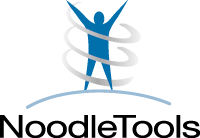Citations and Bibliographies
Citations are acknowledgements within a piece of writing that indicate where an idea, information, or quote originated, allowing readers to locate the source and verify the information. When writing an essay or other academic work, you may be asked to cite your sources using APA or MLA.
APA CITATION STYLE
- APA 7th Edition Citation Style Guide (Printable PDF)
- APA Style Guideline Example Paper from Purdue OWL® (Downloadable PDF)
MLA CITATION STYLE
- MLA 9th Edition Citation Style Guide (Printable PDF)
- MLA Style Guideline Example Paper from Purdue OWL® (Downloadable PDF)
CREATING A BIBLIOGRAPHY OR WORKS CITED PAGE
Note: Be sure to carefully read your assignment or ask your instructor to ensure you create the correct type of document.
Works Cited/Reference List: A works cited list (MLA) or references list (APA) includes only the sources you directly cited in your paper.
- MLA Formatting: List of Works Cited (video by Purdue Owl)
- APA Formatting: Reference List Basics (video by Purdue Owl)
Bibliography: A bibliography is a list of all the sources used in the process of researching and writing a piece of work, including books, articles, websites, and other materials.
Annotated bibliography: An annotated bibliography is a list of citations to books, articles, and documents, with each citation followed by a brief (usually 100-300 words) descriptive and evaluative paragraph, the annotation, that informs the reader about the source's relevance, accuracy, and quality.
- Annotated Bibliography Samples from Purdue OWL®
- What is an Annotated Bibliography? (video by Purdue Owl)
 NoodleTools allows you to create and edit MLA and APA-style bibliographies online. Visit YCCC's online library to connect with our librarian for support using NoodleTools for the first time.
NoodleTools allows you to create and edit MLA and APA-style bibliographies online. Visit YCCC's online library to connect with our librarian for support using NoodleTools for the first time.
Elements
Citations
Sources
Formatting MLA & APA Citations
- MLA Citation Style Tipsheet 9th Edition2021 update for the most current edition of MLA format. Be sure to ask your professor which format to use, APA or MLA.
- Elements of an APA Citation 7th editionThe most current edition of the APA format, now including tips for AI!
Be sure to ask your professor which format to use, APA or MLA.
Formatting MLA & APA Papers
NOODLEBIB
Annotated Bibliographies
Avoiding Plagiarism
As per the YCCC 2024–2025 COLLEGE CATALOG:
The College promotes and maintains high ethical standards of academic conduct. It is College policy to discourage academic misconduct via appropriate administrative penalties. Academic misconduct includes but is not limited to: cheating or dishonesty of any kind in performing academic work; plagiarism, whether intentional or unintentional; and receiving, or attempting to receive, academic credit under false pretenses; submitting the same work in more than one course, without prior permission of the instructor of the second course, or assisting anyone engaged in academic misconduct.
As plagiarism is a serious form of academic misconduct, students must take action to avoid it. Keep the following tips in mind:
- Understand Plagiarism: Plagiarism is presenting someone else's work or ideas as your own, whether intentionally or unintentionally. It includes copying text, ideas, images, or other creative and intellectual works without providing proper credit.
- Properly Cite Your Sources: Whether you are paraphrasing, summarizing, or quoting, always give credit to the original author.
- Paraphrase Effectively: Don't copy and paste sentences, even if you exchange a word or two. If you aren't making a direct quote, you must change the structure and wording to reflect your own understanding. Use synonyms and different sentence structures to avoid simply rearranging the original text. Cite the source when paraphrasing; even if you've rewritten the information, you still need to acknowledge the original author.
- Develop Original Ideas: Think critically and form your own conclusions. Don't just regurgitate information from your sources. You must analyze and interpret it. Add your own insights and perspectives: Share your unique understanding of the topic.
- Manage Your Sources: Keep track of your sources as you research: This will make it easier to cite them accurately later. Use a system that allows you to easily locate information and citations.
A note about AI
If allowed during a class, college students must use AI responsibly by ensuring that it enhances their learning rather than replacing critical thinking and original work. They should use AI tools ethically, following their professor's guidelines, properly citing AI-generated content when necessary, and avoiding plagiarism or academic dishonesty. AI can be a valuable resource for brainstorming, research assistance, and skill development, but students must critically evaluate its outputs and maintain academic integrity. If you are unsure as to whether or not your teacher allows AI reach out to them before using it.
Writing Development Resources
Develop a Thesis Statement
Further Your Research
Create an Outline
Content
ENG 095 PowerPoints from Instructor Linda Twombley
When Do I Use a Comma? Try the SSC Interactive Comma Tool!
Student Success Commons at York County Community College112 College Drive Wells, ME 04090
|
Quick links: YCCC Homepage | MyYCCC Portal | Library | YCCC Email | Brightspace | Technical Support



